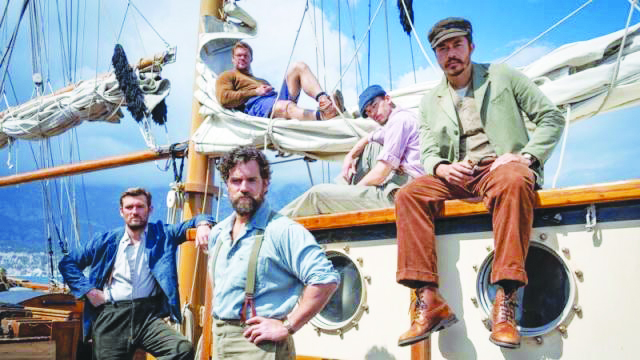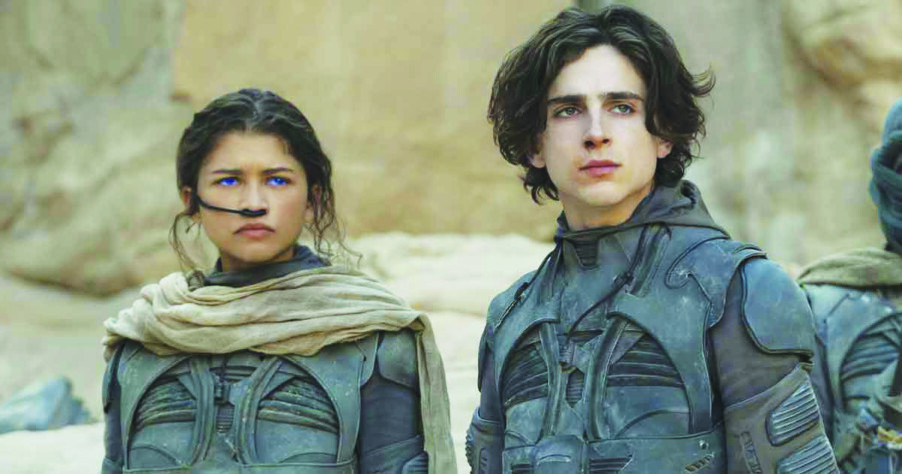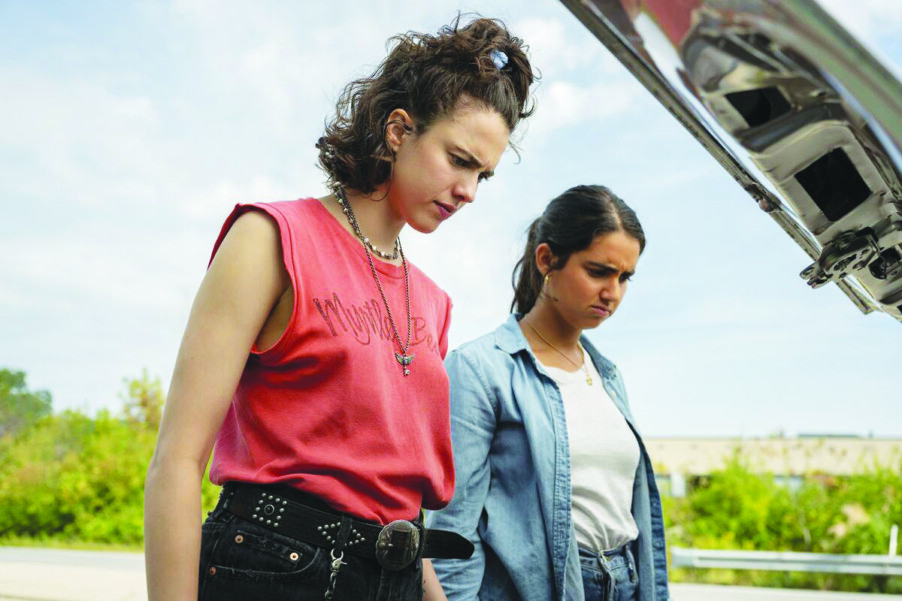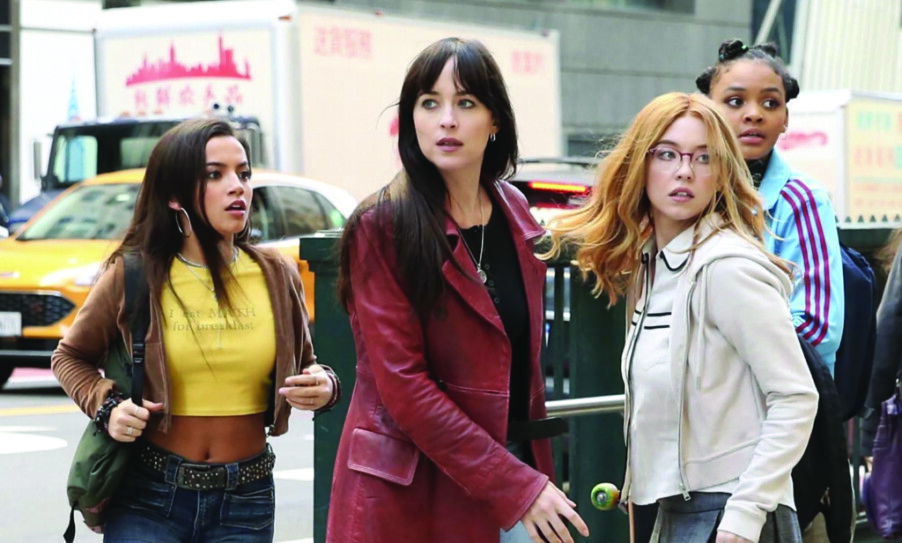Guy Ritchie does an Inglourious Basterds by way of Operation Mincemeat and gets The Ministry of Ungentlemanly Warfare, which is based on a true story from the nonfiction book by Damien Lewis.
As with the 2021 Netflix film Operation Mincemeat, The Ministry of Ungentlemanly Warfare gives us a young Ian Fleming (Freddie Fox) during World War II, working here for a senior officer “M” (Cary Elwes), getting mixed up in wartime spycraft that uses cunning and misdirection to defeat a seemingly better-situated German military. In this case, the plan — Operation Postmaster — is to destroy the ship that supplies the German U-boats that are making it difficult for the British to get food and military reinforcements from America. The ship is in the Spanish-controlled port of an island off the Atlantic coast of Africa. Gus March-Phillips (Henry Cavill), a British officer known for breaking rules and not following orders, is charged with putting together a small crew to sail to the port and blow up the ship — but, like, quietly and unofficially in a way that won’t put the British in open conflict with Franco’s Spain. His basterds include Anders Lassen (Reacher’s Alan Ritchson, playing the same kind of mountain-sized butt-kicking robot here), Geoffrey Appleyard (Alex Pettyfer), Henry Hayes (Hero Fiennes Tiffin) and Freddy Alvarez (Henry Golding — who is my fave in this movie’s collection of “men who could be the next James Bond”). In the port town, British agents Heron (Babs Olusanmokun) and Marjorie Stewart (Eiza Gonzáles) wine and dine and generally distract and pull information from the various Nazis, the ickiest of whom is Heinrich Luhr (Til Schweiger). When the night of the big event arrives, Heron also enlists the help of local Kambili Kalu (Danny Sapani, who also feels like a pretty good Bond candidate).
There is an overall shagginess that slows the movie down and a flatness to the characters that I feel is not uncommon when you’re dealing with a real-world story filled with lots of real people you don’t want to leave out. There is nothing particularly new here; the movie has a “serviceable cover of a decent radio hit” feel overall.
But the group of rascalness-inclined heroes makes for a mostly fun bunch of people to hang out with for two hours. The caper elements are probably the movie’s most interesting and while I wish they were maybe a little sharper, they provide enough energy to keep the last part of the movie in particular buzzing along. B-
Rated R for strong violence throughout and some language, according to the MPA on filmratings.com. Directed by Guy Ritchie with a screenplay by Paul Tamasy & Eric Johnson & Arash Amel and Guy Ritchie based on a book of the same name by Damien Lewis, The Ministry of Ungentlemanly Warfare is two hours long and is distributed in theaters by Lionsgate.
Abigail (R)
A kidnapping gig goes hilariously wrong for a group of criminals in Abigail, a horror movie?
I mean, Abigail has the fixings of a horror movie — big creepy house with passageways and cobwebs and a gang of untrustworthy types who don’t know each other and a “maybe the killer is in here with us!” situation. But this movie is laugh-out-loud hilarious and wonderfully hammy.
The “no names” rule by boss Lambert (Giancarlo Esposito) is why the gang of kidnappers calls each other Joey (Melissa Barrera), Frank (Dan Stevens, chewing all the scenery as he does what feels like a Nic Cage impression), Rickles (William Catlett), Sammy (Kathryn Newton), Peter (Kevin Durand) and Dean (Angus Cloud). They didn’t even all know that the person being kidnapped is a child, Abigail (Alisha Weir), or who her father is. Joey, a nurse charged with taking care of Abigail, promises the young girl she’ll keep her safe and get her back to her father as soon as the ransom is paid. Abigail appreciates that and tells Joey she’s sorry about what is about to happen to her.
A shaken Joey goes back to the group — who is this girl’s father and what kind of trouble are we in?
The trailers to this movie spell out exactly what kind of trouble the group is in and it is delightfully bonkers. We first see Abigail as she dances ballet to “Swan Lake” and she spends much of the movie in a ballerina outfit, bringing big M3gan vibes to everything she does. The criminal characters mostly play it straight — they are after all being picked off one by one — while still acknowledging the unreality of their situation. The movie nicely blends the tropes of a haunted house-style horror and an unreliable criminals caper with its silly-but-great central premise for an overall fun time. There are some jump scares and a significant amount of explodey, chunky gore but otherwise this is definitely a horror movie that delights in the campiness of its genre more than its frights. B,maybe even a B+ for the overall sense of glee
Rated R for strong bloody violence and gore throughout, pervasive language and brief drug use, according to the MPA on filmratings.com. Directed by Matt Bettinelli-Olpin and Tyler Gillett with a screenplay by Stephen Shields and Guy Busick, Abigail is 106 minutes long and distributed in theaters by Universal Studios.
Featured photo: The Ministry of Ungentlemanly Warfare.





